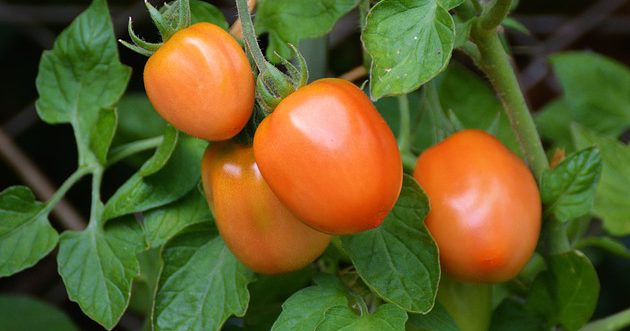October 27, 2016
Abu Dhabi-based Shorooq Investments has committed $1.1 million in seed funding to agricultural technology firm, Pure Harvest Smart Farms, and has concurrently acquired 3.3 hectares in Nahel, UAE for Pure Harvest’s launch of the Emirate’s first high-tech, commercial scale greenhouse operation for the year-round production of tomatoes.
Pure Harvest, which will be led by founder and CEO, Sky Kurtz and co-founder and director Mahmoud Adi, plans to establish its regional headquarters in Abu Dhabi Global Markets, and has hired Thomas Larssen of Larssen Ltd., an engineering and technical consulting firm specializing in the greenhouse industry.
The company has also established an Advisory Board consisting of leading academics, industry professionals and regional business leaders, including Dr. Jouke Campen, International Project Manager at Wageningen UR Greenhouse Horticulture and specialist in arid climate agriculture; Peter Satow, Founder and CEO of PESA Advanced Hydroponics and crop consultant; Chris Gillitt, Agricultural Economist at Palladium, and Sjef Smits, an experienced grower with knowledge of the challenges of growing food in arid climates.
With help from its board, Pure Harvest plans to grow high-value crops using its proprietary semi-closed climate controlled production system that is engineered to produce foods in the arid GCC region. Optimal indoor conditions will be consistently maintained using over-pressure climate control technology and hybrid evaporative and mechanical cooling systems.
“Ultra-modern hydroponics – called Controlled Environment Agriculture or Precision Agriculture – has vast potential to revolutionize the agriculture sector in the region and could, at scale, have a meaningful impact on the regional economies as they aspire to diversify away from oil. I believe that we can create a lasting impact in the region and pave the way toward sustainability.”
This system of ultra-modern hydroponics can be applied to the production of not only tomatoes, but to a range of crops including cucumbers, eggplants, strawberries and peppers.
“The region’s economies have begun to experiment with the use of mid-tech hydroponic technologies,” said Sky Kurtz, “however, to our knowledge nobody has ‘fully committed’ – investing the necessary capital and deploying the portfolio of technologies needed to produce Dutch-quality produce year-round at a commercial scale in hot/humid areas bordering the Arabian Gulf.”
Gaining Momentum
Although advances in technology resulted in an increase in food production in the MENA region in the 1990s, the region is still expected to see a food deficit of between 50 million tons and 90 million tons by 2020. As a result, indoor vegetable production in the Middle East region has been gaining traction with both investors and startups.
In July of this year, a joint venture partnership between Japan’s Marubeni Corporation, Showa Denko K.K., and Chiyoda Corporation announced plans to launch an indoor, artificially lit, vegetable factory business in Dubai.
This venture will use a cultivation system based on Show Denko’s “Shigyo method” or “S Method,” the optimum combination of red and blue light to accelerate photoresponses and vegetable growth. The LED lighting, which will be supplied by Showa Denko will irradiate the plants at optimum intervals ensuring high yields and rapid crop growth while saving on electricity. Chiyoda will design and manage the procurement and management of the factory based on the company’s experience through its experimental study of crop cultivation on the International Space Station, and Marubeni will oversee the market development of vegetable factories in foreign markets.
Pegasus Agriculture is also a key player in the space. With a head office in Dubai, Pegasus Agriculture sees hydroponics as a key tool to ensuring food security in the face of climate change, sprawling population, and the loss of arable land. Using premium seeds sourced from Europe, the sharia-compliant company plants in a bed of rock wool, using 90 percent less water, zero soil, and producing fresh produce 300 percent quicker on 75 percent less space than traditional agricultural production, according to its website.
The group’s cornerstone project was launched in 2013 through a partnership with Gardinia Hydroponic Farming (GHF) in Oman, and in April 2014 the group announced its expansion into Saudi Arabia – a country that imports 95 percent of its fresh fruits and vegetables, with a 20,000 square meter hydroponic farm that is designed to produce 1,400 tons of produce per hectare.
—
Lynda Kiernan

Let GAI News inform your engagement in the agriculture sector.
GAI News provides crucial and timely news and insight to help you stay ahead of critical agricultural trends through free delivery of two weekly newsletters, Ag Investing Weekly and AgTech Intel.




